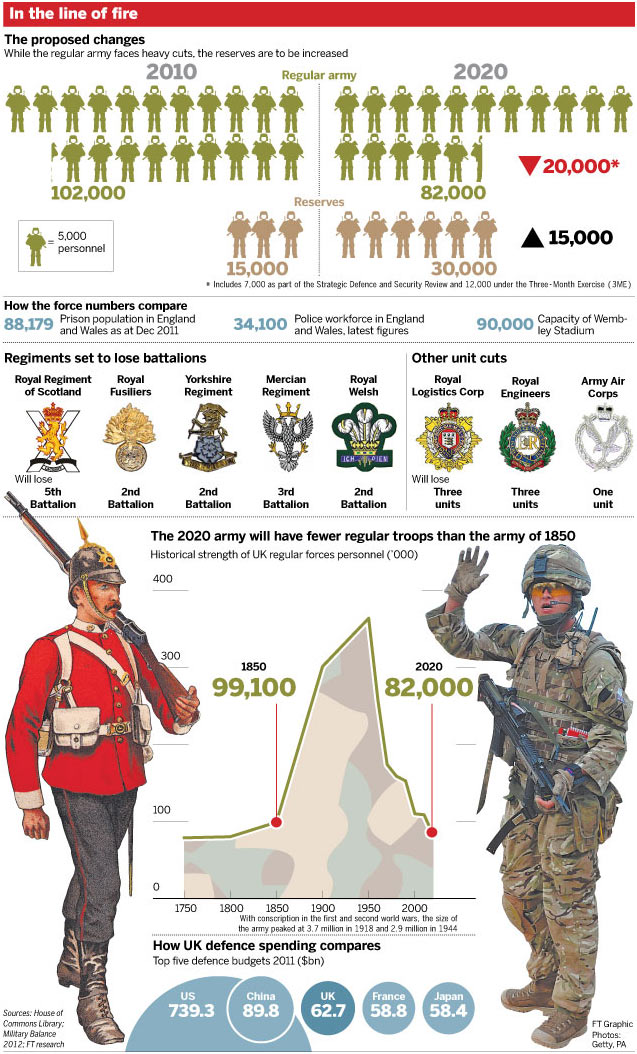One of the few
constants of civilization has been the presence of armed conflict in Europe . The continent
has seen almost continual fighting since it was inhabited, either in the form
of wars of nation against nation or civil wars within a nation. The last century saw the horror of war
reach a level only dreamed (nightmared) about in fiction.
World War II taught Europe a lesson it appears to have finally
learned. Wars are destructive not
constructive, and one facet of post WWII policy in Europe
has been to adopt programs that reduce rather than encourage armed conflict as
a way to settle difference. In fact, the
current issue in Europe is one of how much,
not how little national sovereignty to cede in the goal of a unified and
peaceful continent.
But even if
continental politics were not driving European cuts in national defense
spending economics would be. It turns
out that with soft economic growth, an aging population that will need more
rather than less government support and the demands of non-defense government
resources, there is simply not enough money left over for Europe
to build the armies and weapons to go to war.
 |
| Source: Financial Times July 5, 2012 Notice the Comparison of the U. S. to the Other Major Spenders on Defense! |
So the announcement
that Britain would cut
its troop levels to an amount not scene in about 200 years is not a
surprise.
Philip Hammond,
defence secretary, announced on Thursday that over the next eight years, the
army is to lose 17 of its 136 major units, prompting outcry at the loss of
historic battalions.
Mr
Hammond told the Commons that the reduction in troop numbers was part of a
strategy aimed at reforming the army as its decade-long campaign in Afghanistan ends.
He
said the aim of the reforms, called Army 2020, was to transform UK
The opposition Labour party, like any other political
party seized on the news to try to make political points.
Jim
Murphy, the shadow defence secretary, attacked the proposals, accusing
ministers of putting “savings before strategy”. He said jobs and military
capability had been lost “and tradition and history have been sacrificed.”
Mr
Murphy added: “This isn’t just a smaller Army, it’s also a less powerful Army
in a less influential nation. Our armed forces and their families deserve
better.’’
It’s nice to know that opportunistic pandering is not the
exclusive actions of any political party.
Were Labour in power, of course, they would be doing the same thing and
would be subjected to criticism from the Conservative party.
As far as the United States is concerned, the movement of Britain towards a much smaller armed forces
means that the Brits will no longer be Washington ’s
unquestioning ally in misadventures such as Iraq . This is probably a good thing.



No comments:
Post a Comment